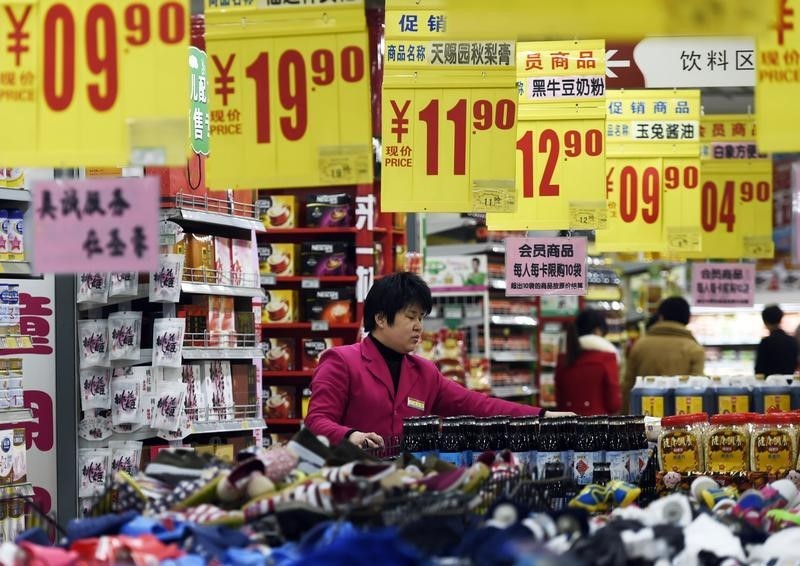By Ambar Warrick
Investing.com-- Chinese inflation rose in September as a raft of liquidity measures by the People’s Bank and increased spending during the mid-Autumn festival helped support retail prices, although factory-gate inflation continued to languish near 20-month lows.
The consumer price index rose 2.8% on an annual basis in September, data from the National Bureau of Statistics showed, meeting expectations. The figure was more than August’s reading of 2.5%.
On a monthly basis, CPI inflation rose 0.3% from August, compared to a contraction of 0.1% in the prior month.
But China’s producer price index, which measures factory-gate prices, rose at an annualized 0.9% in September, compared to expectations for growth of 1%. The reading was well below August's 2.3%, and also touched its weakest level since February 2021.
The reading shows that the Chinese economy remains under pressure from the aftermath of several COVID-related lockdowns this year. Manufacturing activity in particular has suffered the most due to continued factory closures.
Friday’s reading also comes after recent data showed that the Chinese manufacturing sector activity stayed close to contraction territory in September. COVID restrictions also kept spending subdued during the mid-Autumn festival, which is usually a source of outsized retail sales.
The inflation readings come ahead of the 20th National Congress of the Chinese Communist Party on Sunday, which is expected to provide cues on Chinese economic policy over the next five years.
Beijing has vowed to increase stimulus measures in order to shore up slowing economic growth. But the country also faces a balancing act in enacting supportive measures without damaging the yuan.
The Chinese currency fell 0.2% on Friday. It recently hit its weakest level since the 2008 financial crisis, while the offshore yuan hit a record low on growing headwinds from rising interest rates across the globe.
Beijing’s refusal to budge on its COVID Zero policy has been the biggest headwind to the Chinese economy this year. Fears of more lockdown measures crept back into markets this week as financial capital Shanghai reported a spike in COVID cases.
